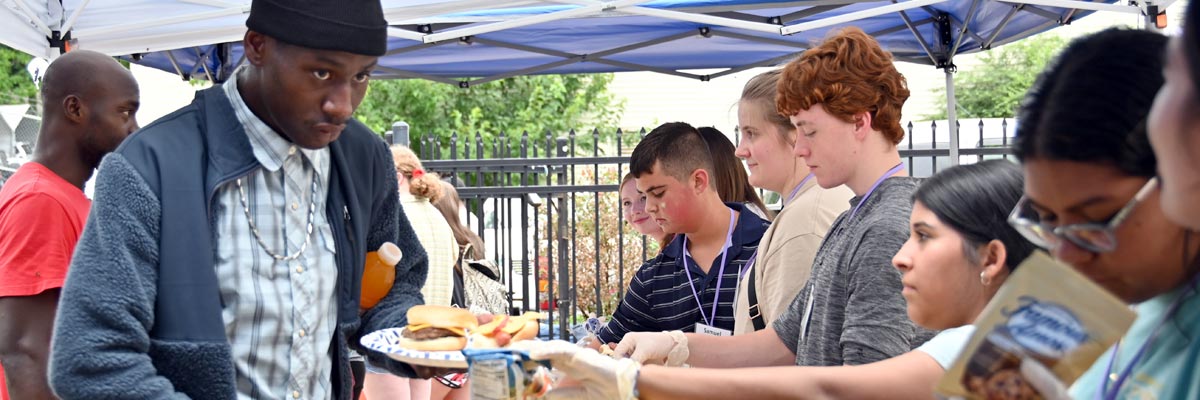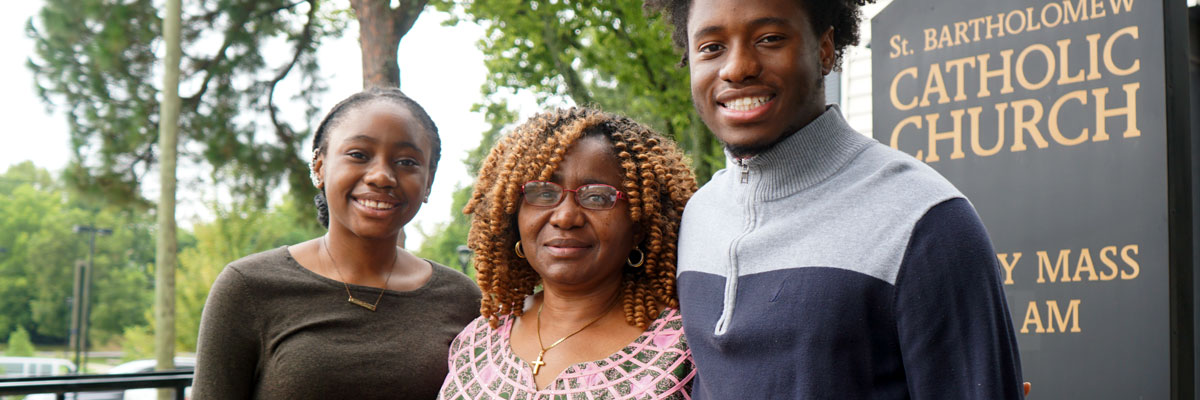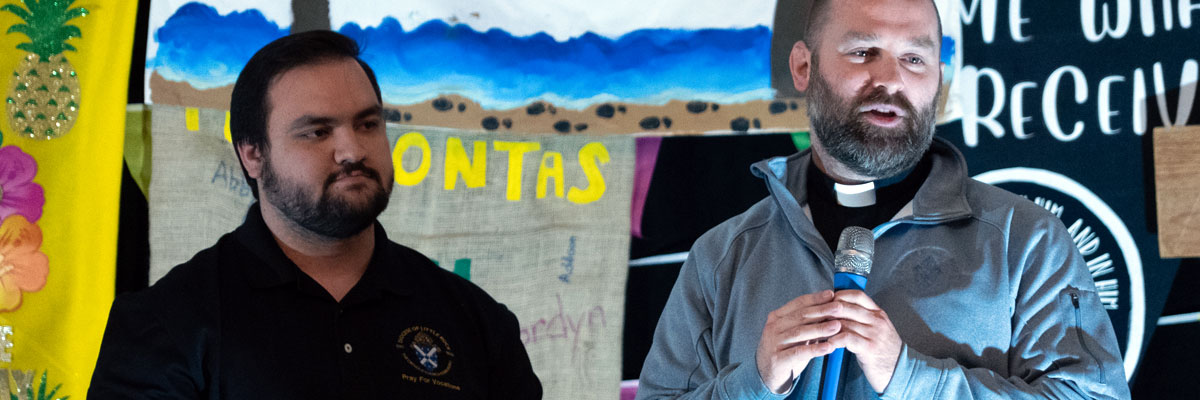Official Website of the
Catholic Diocese of Little Rock
Welcoming a stranger is not just polite; it is a command from God
Published: October 7, 2006
By Msgr. Richard Oswald
The U.S. Census Bureau recently released figures estimating that since the year 2000 the Hispanic population of Arkansas has risen by 51 percent to 130,846. Hispanic immigration during the past 20 years has doubled the total number of Catholics in the Diocese of Little Rock. How should we respond to the gift of all these people to the Church in Arkansas? Sacred Scripture and the Tradition of the Church have much to teach us. In migrants the Church has always seen the image of Christ who said, “I was a stranger and you made me welcome.” (Matthew 25:35) The story of our salvation as told in the experience of God’s people is the story of a migrant people. Israel traced its origins to Abraham, who, in response to the call of God, left his home and went to a foreign land, trusting God’s promise that he would become the father “of a great nation.” (Genesis 12:1-2) Jacob, who is described as a wandering Aramean, “went down into Egypt with a small household and lived there as an alien.”(Deuteronomy 26:5) After a long period of slavery Israel became the “People of God” when God made a covenant with them during their 40-year exodus journey through the wilderness. Migration and deportation is fundamental to the story of God’s chosen people. Israel knew the return from exile.(Isaiah 42:6-7; 49:5) Memories of their exile and return enabled them to trust in God even in the darkest moments. The Law commands “When an alien resides with you in your land, do not molest him. You shall treat the alien no differently than the natives born among you. Have the same love for him as for yourself; for you too were once aliens in the land of Egypt.” (Leviticus 19:33-34) This theme of the value and dignity of the foreigner continues in the story of Jesus. In the foreigner we Christians see not simply a neighbor, but the face of Christ himself who was born in a manger and fled into Egypt where he was a foreigner. Jesus sums up and repeats in his own life the basic experience of God’s people before him. (Matthew 2:13-23) Born away from home (Luke 2:4-7), he spent his public life on the move, going through towns and villages (Luke 13:22; Matthew 9:35) depending on the kindness of others. He had nowhere to lay his head.” (Matthew 8:20; Luke 9:58) In the same way, Mary, the Mother of Jesus, can be contemplated as a living symbol of the woman migrant. She gave birth to her son away from home and was compelled to flee to Egypt. Mary and her son knew the pain of immigration and exile. Our faith reminds us that we are all pilgrims on our way toward our true homeland. For Christians where one lives or one’s immigration status is not as important as the faith we share. We are not the “American Catholic Church.” We are the Catholic Church in America, the same universal Church that is found in every nation and culture of our world. When Christ “knocks at our door” in the person of the migrant our response must be characterized by attention, welcome, sharing and solidarity. Our parishes must always be open to every person who seeks to celebrate the sacraments, be formed in faith or find comfort and assistance in time of need. As the body of Christ we must be a sign of fraternity and communion, the light of Christ shining for the world. Msgr. Richard Oswald, VF, is pastor of Immaculate Conception Church in Fort Smith.









